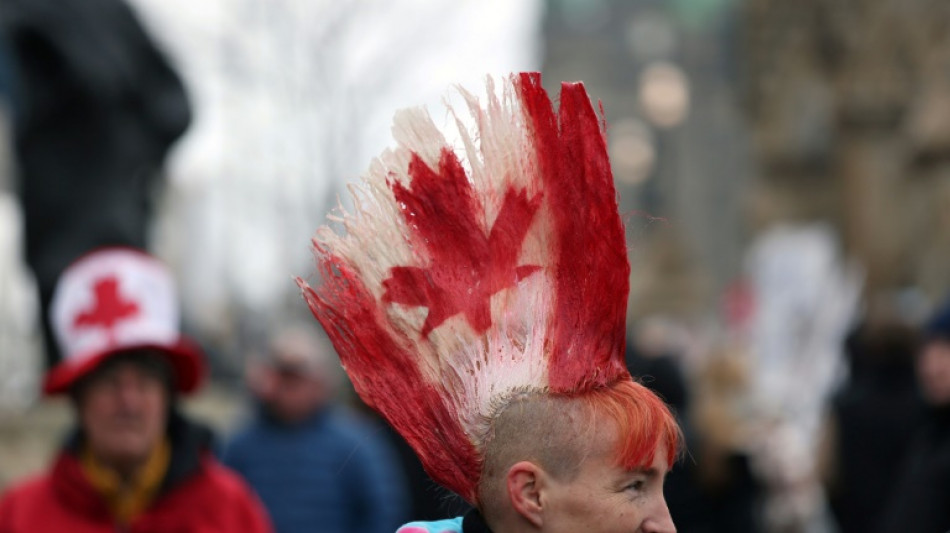

Pressure on Trudeau as trucker protests spark Ontario emergency
Canadian leader Justin Trudeau faced mounting pressure from Washington Friday to bring an end to snowballing trucker-led blockades over Covid rules, as the protest epicenter of Ontario province declared a state of emergency.
The capital Ottawa has been clogged with hundreds of big rigs for two weeks, while three US border crossings have been shut down by truckers -- paralyzing a key North American trade route.
The snowballing movement has morphed into a broader protest against pandemic health rules and Trudeau's government -- and sparked solidarity rallies from France to New Zealand.
Accused by the opposition of taking a backseat in the crisis, Prime Minister Trudeau was to address the House of Commons at 2 pm (1900 GMT) -- a day after Washington urged its northern neighbor to use federal powers to bring the situation under control.
The days-long border obstructions have already had significant economic impact, with several automakers forced to cut back production, triggering fears they could impact Canada's recovery from the pandemic.
The premier of Ontario province, Doug Ford, who like Trudeau has been accused of inaction, Friday declared a state of emergency and vowed to take "whatever steps are necessary" to end the border blockades.
Truckers have "taken a city of one million people hostage for the past two weeks," Ford told a news conference, threatening steep fines of up to Can$100,000 ($80,000) and jail unless protesters end their "illegal occupation."
"To the people of Ottawa under siege, I say we will ensure you're able to resume life and business as soon as possible," Ford said.
Canada's self-styled "Freedom Convoy" began last month in the country's west -- launched in anger at requirements that truckers either be vaccinated, or test and isolate, when crossing the US-Canada border.
The Ontario emergency came as thousands of protesters were headed toward Paris in similar convoys from across France, despite police warnings to back off.
The French protesters included opponents of Covid vaccination, but also people angry at fast-rising energy prices -- in an echo of the "yellow vest" grievances that sparked widespread protests in 2018 and 2019.
Protesters have likewise set up a makeshift camp outside New Zealand's parliament, scene of violent clashes earlier this week as police sought to clear anti-vaccine demonstrators.
- 'Intimidation' -
The Ontario premier acknowledged that Canadians have the "right to peacefully protest when they disagree with what our government is doing" to stem the pandemic, adding: "I know these frustrations have reached a boiling point for many Canadians."
But he warned: "This is no longer a protest."
Ford accused the protesters of "targeting our lifeline for food, fuel and goods across our borders" while "trying to force a political agenda through disruption, intimidation, and chaos."
"We're in a critical situation worldwide economically... the last thing we need is an anchor around our neck," he said.
The vital Ambassador Bridge connecting Windsor, Ontario and the US city of Detroit, is used daily by more than 40,000 commuters and tourists, along with trucks carrying $323 million worth of goods each day on average -- about one-quarter of all Canada-US trade.
On Thursday evening, Ford's government separately obtained a court order barring anyone from tapping the millions of dollars raised by the convoy through the fundraising platform GiveSendGo.
The protesters switched their fundraising efforts to the platform after GoFundMe terminated their original campaign, claiming it violated terms of service that "prohibit user content that reflects or promotes behavior in support of violence."
A.M.Ruiz--ESF




